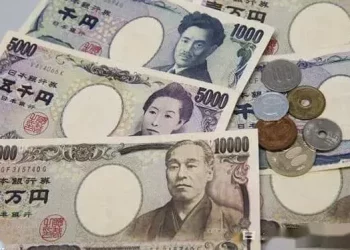Hong Kong, a vibrant global financial hub known for its unique blend of Eastern and Western influences, has a multifaceted currency system. This article delves into the role of the Chinese Yuan (CNY) in Hong Kong, exploring its historical context, current usage, regulatory environment, and implications for businesses and individuals.
Historical Context of Currency Use in Hong Kong
Hong Kong’s currency history reflects its complex economic and political ties. Historically, Hong Kong has maintained a distinct monetary system from Mainland China. The Hong Kong Dollar (HKD) has been the primary currency since the territory was ceded to Britain in the 19th century. It remains pegged to the US Dollar under a linked exchange rate system, which has provided stability and facilitated Hong Kong’s role as an international financial center.
The relationship between Hong Kong and Mainland China has evolved significantly, especially in the context of currency use. With the economic rise of Mainland China, the Chinese Yuan has increasingly become relevant in Hong Kong’s financial landscape.
Current Usage of Chinese Yuan in Hong Kong
While the Hong Kong Dollar remains the official currency, the Chinese Yuan has made significant inroads into Hong Kong’s financial system. The introduction of the Renminbi (RMB) into Hong Kong’s economy can be traced back to several key developments.
Cross-Border Trade and Investment
Hong Kong serves as a major gateway for trade and investment between Mainland China and the rest of the world. As a result, the Chinese Yuan has become a crucial part of cross-border trade settlements. The city’s financial infrastructure supports the use of RMB for trade transactions, investment activities, and other financial operations.
Companies engaged in trade with Mainland China often find it advantageous to transact in RMB to simplify currency conversion and reduce exposure to exchange rate fluctuations. This trend has led to an increase in RMB-denominated transactions in Hong Kong’s trade and investment sectors.
Renminbi Banking Services
The growth of RMB banking services in Hong Kong reflects the increasing use of the Chinese Yuan. Hong Kong’s banking sector offers a range of RMB-denominated products and services, including savings accounts, term deposits, and loans. Major banks in Hong Kong provide RMB banking services to meet the needs of clients engaging in RMB transactions.
Additionally, the establishment of the RMB clearing and settlement mechanism in Hong Kong has facilitated the smooth flow of RMB between Mainland China and the international market. This mechanism supports RMB business and enhances Hong Kong’s role as an offshore RMB center.
Renminbi Financial Products and Investments
Hong Kong has developed a diverse range of RMB financial products and investment opportunities. These include RMB-denominated bonds, equities, and other financial instruments. The city has also hosted the issuance of RMB-denominated investment products, catering to both institutional and individual investors seeking exposure to Mainland China’s financial markets.
The growth of RMB-denominated financial products underscores Hong Kong’s strategic position as a bridge between Mainland China and global investors. It reflects the broader trend of increasing RMB internationalization and Hong Kong’s role in facilitating this process.
Regulatory Framework and Policy Implications
The regulatory framework governing the use of the Chinese Yuan in Hong Kong is shaped by both local and Mainland Chinese authorities. Hong Kong’s unique “one country, two systems” arrangement allows for a high degree of autonomy in managing its monetary and financial policies.
Hong Kong Monetary Authority (HKMA) Regulations
The Hong Kong Monetary Authority (HKMA) plays a key role in regulating RMB activities within the territory. The HKMA oversees the implementation of policies related to RMB business and ensures that RMB transactions comply with both local and Mainland Chinese regulations.
The HKMA’s role includes managing RMB liquidity, facilitating the smooth functioning of RMB clearing and settlement systems, and promoting the development of RMB financial products. The Authority’s regulatory framework ensures that Hong Kong remains a stable and attractive hub for RMB activities.
Mainland China’s Influence and Policies
Mainland China’s policies also significantly impact the use of the Chinese Yuan in Hong Kong. The People’s Bank of China (PBOC) sets the framework for RMB internationalization and manages the overall policy direction for RMB cross-border transactions.
Collaborations between the PBOC and the HKMA have led to initiatives such as the Shanghai-Hong Kong Stock Connect and the Bond Connect programs. These initiatives have expanded opportunities for international investors to access Mainland China’s financial markets and have strengthened the integration of RMB into Hong Kong’s financial system.
Implications for Businesses and Individuals
The increasing use of the Chinese Yuan in Hong Kong has several implications for businesses and individuals operating in or engaging with the territory.
For Businesses
Businesses involved in cross-border trade and investment with Mainland China benefit from the ability to transact in RMB. This can reduce currency conversion costs, mitigate exchange rate risks, and streamline financial operations. Additionally, companies with RMB-denominated revenue or expenses can better manage their cash flow by holding RMB in local bank accounts.
The availability of RMB financial products offers businesses opportunities to diversify their investments and access Mainland China’s capital markets. Companies may also explore RMB-denominated loans and other financing options to support their operations and expansion plans.
For Individuals
For individuals, the use of the Chinese Yuan in Hong Kong provides greater flexibility in managing personal finances. Those with investments or business interests in Mainland China can benefit from the ability to hold and transact in RMB locally. This can simplify financial management and reduce the costs associated with currency conversion.
RMB-denominated savings accounts and investment products offer individuals opportunities to participate in Mainland China’s economic growth. The availability of such products in Hong Kong allows investors to access a broader range of financial instruments and potential returns.
See Also: What is the Name of China’s Capital Currency?
Challenges and Considerations
Despite the growing integration of the Chinese Yuan into Hong Kong’s financial system, there are challenges and considerations associated with its use.
Exchange Rate Fluctuations
Exchange rate fluctuations between the Chinese Yuan and other currencies can impact businesses and investors engaged in RMB transactions. While Hong Kong’s currency peg provides stability for the HKD, the RMB’s exchange rate can be influenced by various factors, including Mainland China’s economic policies and global market conditions.
Businesses and investors should be aware of potential currency risks and consider strategies to manage these risks, such as using hedging instruments or diversifying their currency exposure.
Regulatory Compliance
Navigating the regulatory environment for RMB transactions requires careful attention to compliance with both local and Mainland Chinese regulations. Businesses and individuals engaging in RMB activities should stay informed about regulatory changes and ensure that their operations adhere to applicable rules and guidelines.
The evolving nature of RMB internationalization and regulatory policies means that stakeholders must remain vigilant and adapt to new developments as they arise.
Conclusion
In conclusion, while the Hong Kong Dollar remains the primary currency in Hong Kong, the Chinese Yuan has established a notable presence in the territory’s financial landscape. The integration of RMB into Hong Kong’s economy reflects the broader trend of RMB internationalization and highlights Hong Kong’s role as a key player in facilitating cross-border trade and investment with Mainland China.
The growth of RMB banking services, financial products, and investment opportunities underscores the increasing relevance of the Chinese Yuan in Hong Kong. As both local and Mainland Chinese authorities continue to shape the regulatory environment, businesses and individuals should remain informed and adaptable to leverage the opportunities presented by RMB integration.
Hong Kong’s unique position as a financial hub and its evolving currency landscape make it a dynamic environment for engaging with the Chinese Yuan. Understanding the implications of RMB use and staying abreast of regulatory developments will be essential for stakeholders navigating this complex and evolving financial landscape.
Related Topics:

























